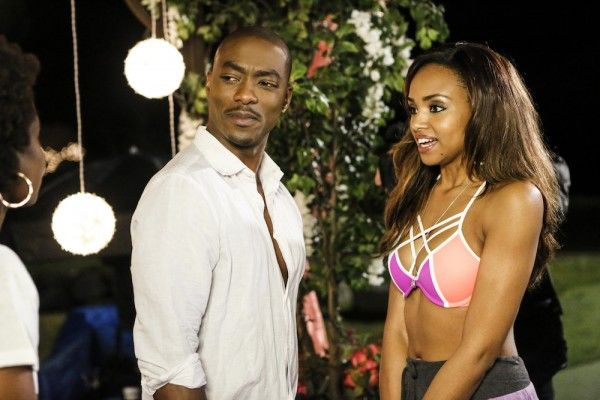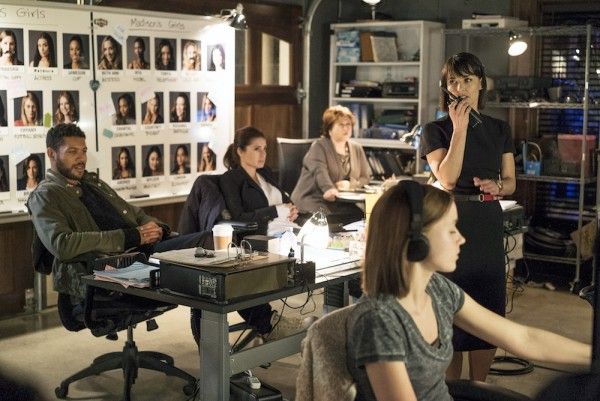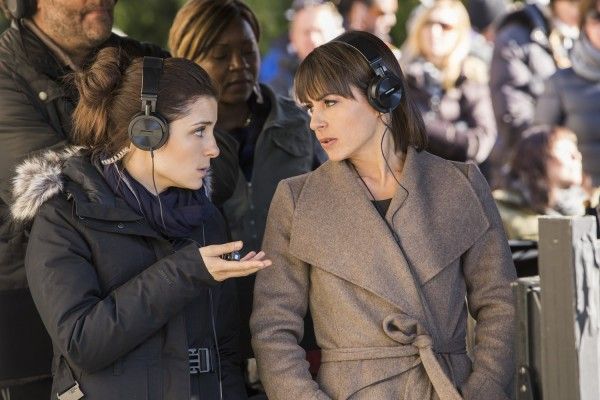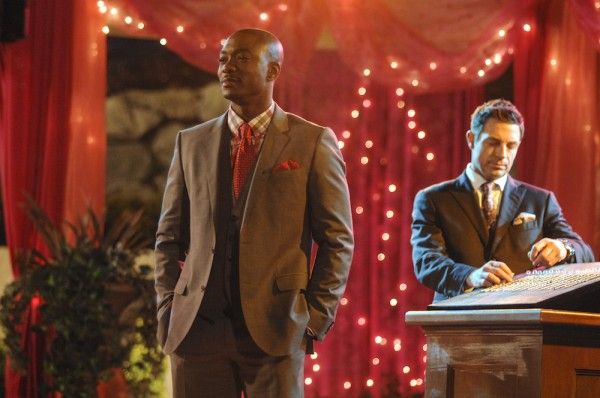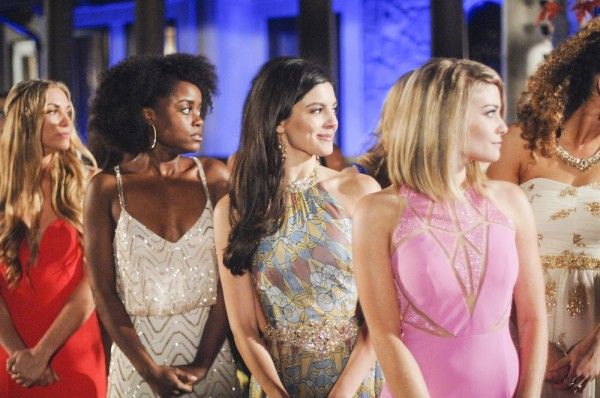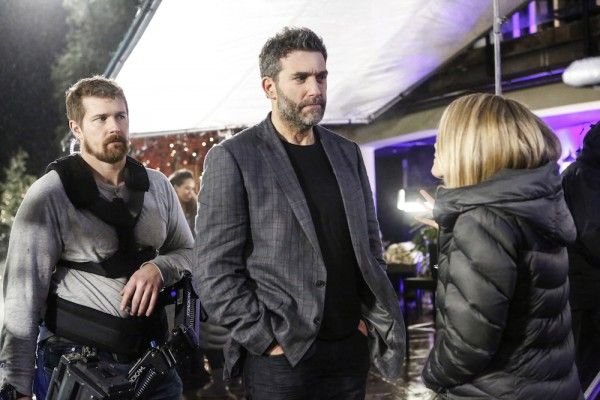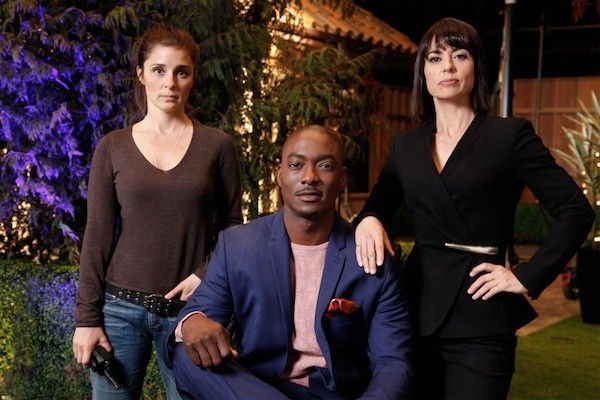If you’ve ever watched even one episode of any of ABC’s Bachelor franchise series, Lifetime’s bitter satire of it, UnReal, will certainly strike a chord. But even if you are unfamiliar with The Bachelor there’s still plenty to love about UnReal, which has a deep and pervasive cynicism about the reality TV business that even rivals Veep’s excoriating look at politics. The difference is that on UnReal, the jagged barbs and whip-sharp exchanges are occasionally taken to heart, making the series as emotionally wrought as it its characters are morally bankrupt.
UnReal follows the on and off-camera drama of a fictional network dating series called “Everlasting,” and focuses on a young producer, Rachel (Shiri Appleby) who returns to the show in Season 1 after an onscreen breakdown. Goaded by her boss and mentor Quinn (Constance Zimmer), Rachel encourages the rest of the producers to follow her lead in manipulating the women (and leading man) of “Everlasting” into providing ratings-worthy TV, while trying to separate the dark things she does in service of the show from affecting her personal life. It’s a losing battle.
Season 2 picks up with Quinn taking over the role formerly held by the show’s bombastic, drug-addled show creator — and Quinn’s former lover — Chet (Craig Bierko), and Rachel moving up into Quinn’s position. That satisfying hierarchy doesn’t last for long, but the backstage theatrics are eclipsed only by what happens on the show-within-a-show itself. “Everlasting” is set on making history with its first black suitor (or as Quinn describes the pro quarterback, “he’s not black, he’s football black”) looking to rehab his image. So fittingly, the women are brought in to clash with him, each other, or to specifically catch his interest in a way engineered from the start.
On the production side, in Season 1 we not only saw Rachel blow up her relationship and mess up the life of caring and conflicted cameraman Jeremy (Josh Kelly), but also start (and eventually blow up) a relationship with “Everlasting’s” suitor, Adam (Freddie Stroma). Everything Rachel does is for the good of the show, and yet, Quinn also ultimately betrayed her. In “Everlasting’s” world, nothing is sacred, and no one can be trusted. In Season 2, all of that has consequences.
UnReal comes from Marti Nixon and Sarah Gertrude Shapiro, the latter of whom actually worked on The Bachelor. That insider knowledge shows, not just in the series' more dramatic moments, but in the offhanded way that production and behind-the-scenes snippets are incorporated: cameramen running around, comments about shooting in “hard night” and other lighting concerns, temperature issues, makeup and wardrobe, boom mic reminders. It’s part of the fabric of any production, but it’s rare a show gets into the details so fully and effortlessly, in a way that feels casual, informative, and an integral part of the action all at once.
But a big part of UnReal also focuses on power and gender roles. The women on camera for “Everlasting” are degraded and reduced to purposefully tropey names like “wifey,” “bitch,” “angry black woman,” and “terrorist” by the producers, who see them as little more than pawns. It also leads to some extremely uncomfortable moments, as the women are very purposefully torn down and exploited. That is all in direct opposition to the presentation they strive to provide to audiences with — a fairy tale, tailor-made to appeal the masses. Quinn and Rachel also fight for their ground against Chet and the network president, his “golfing buddy,” but also fight against one another for power, and throw the female contestants under the bus to get what they want.
This jockeying for power — among the production staff, the women, even the suitor who likes to feel he has some choice in picking his future wife — is another constant theme on UnReal, and Season 2 immediately dives in to both that and gender politics without skipping a beat. The show is fast, funny, profane, and charming, even with it occasionally gets almost unrelentingly dark as abuse and toxic relationships run up and down the chain. Rachel is continuously gas-lighted by everyone around her, from her exes and the men she sleeps with to Quinn and her psychiatrist mother. Is she actually crazy, or just driven, exhausted, and put in the nonstop, impossible position of running a show where she isn’t given any actual power?
Like “Everlasting,” UnReal has a glossy exterior that hides a lot of darkness and difficult choices. On both sides it’s engrossing in its biting satire and the way it explores the truths of its themes and emotions. Its twists typically take the form of revelations that people are far worse than viewers expect them to be, or that they are capable of misrepresenting themselves to an incredible degree. And while it’s exaggerated — one hopes — it can also ring true, even when the show can bog itself down by trying to make to many statements at once, or goes overboard on the reveals and soapy theatrics.
Lifetime has been testing different kinds of programming to appeal to more diverse audiences over the last few years, but not many have stuck. It’s mainly thrown its lot in on reality shows, and adding to its longtime stable of original movies (some of which are becoming increasingly bizarre and avant grade), though there have been a few notable pickups — like War & Peace — that show Lifetime stretching its borders. UnReal is by far its boldest and most ambitious series, and with each season running at a smart (and quick) 10 episodes, it’s the kind of investment TV fans should hope to see more of.
Rating: ★★★★ Very good — Deliciously dark fun
UnReal Season 2 premieres Monday, June 6th on Lifetime


